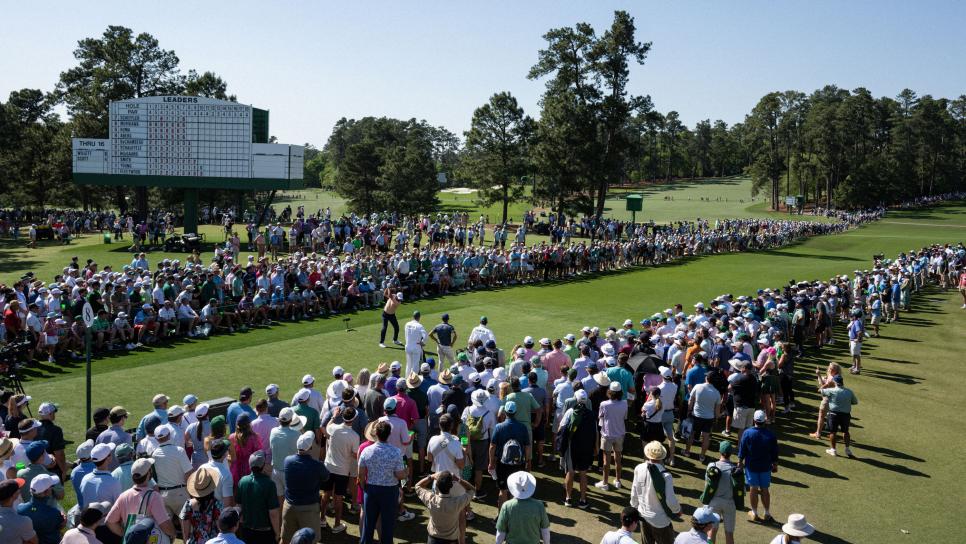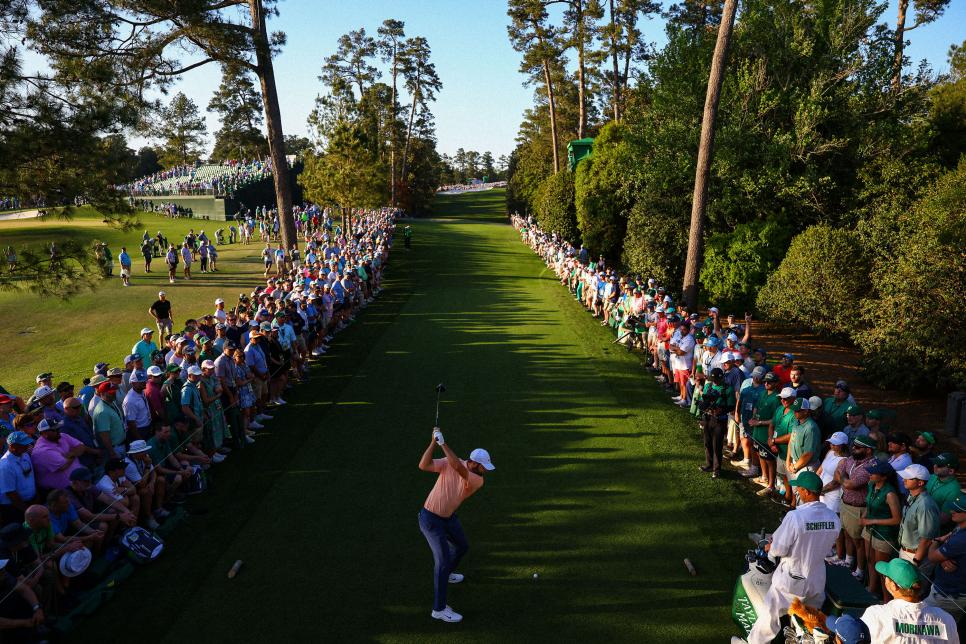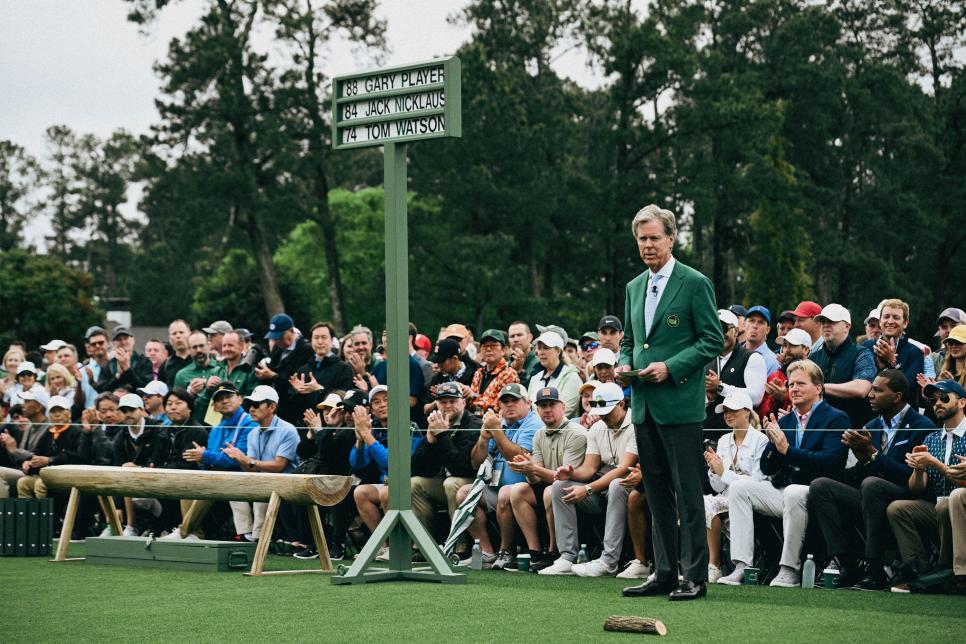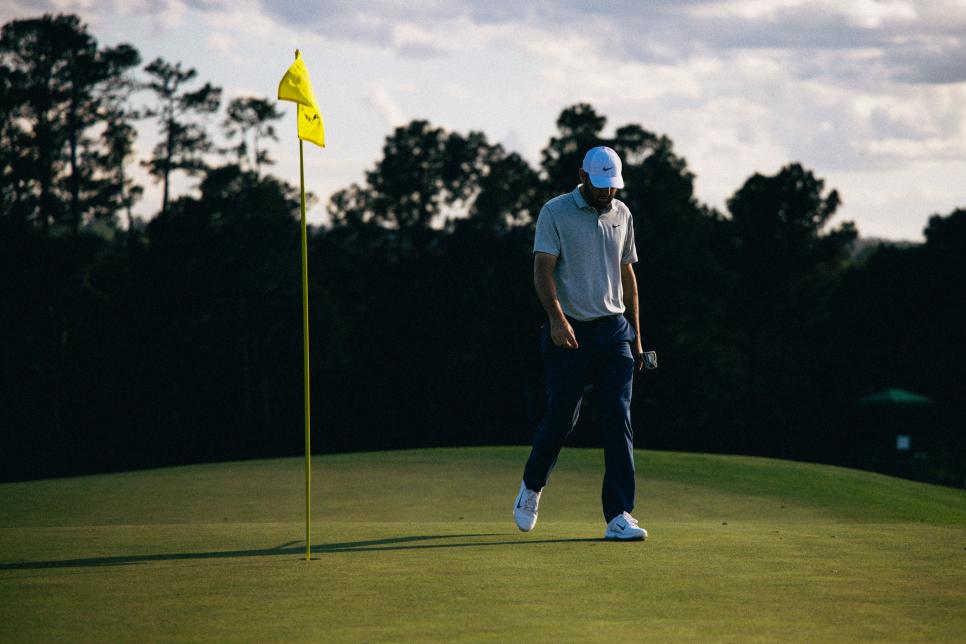[PHOTO: Ben Walton]
Now that a few days have passed, it’s been enough to validate that the sensation was real – yes, that was a feel-good Masters. The biggest reason being that Scottie Scheffler was in such command he finally convinced even the most stubborn doubters just how good he is.
But it was also welcome to come away feeling, if not quite good, at least better about pro golf.
Masters 2024: Scottie Scheffler did what was expected, which you’re not supposed to do
It’s been a while. I’ve been worried to the point of resignation that the fracture in the professional game caused by the profligate poaching of PGA Tour pros to the Saudi-funded rival league, LIV Golf, was pointing golf towards the same spiral as boxing, track and field, bowling and even tennis as another sport to lose its hold on the public. But yes, while the CBS’ final-round ratings followed the trend in 2024 of being down from the previous year, some interactions and observations from being at this year’s Masters eased my mind.
It began with Fred Ridley. Whether the Augusta National chairman is or isn’t the most powerful organisational leader in golf, his annual Wednesday press conference has become pivotal. Last week as he addressed thorny, unresolved issues with a calm understatement that belied urgency. By the end of his remarks, the way forward seemed more clear.

He also pushed back against growing criticism of the Official World Golf Ranking by calling it a “legitimate determiner of who the best players in the game are”, and defended the OWGR’s crucial decision to deny LIV events ranking points by characterising the upstart league as “for the most part, a closed shop”.
Masters 2024: As Scottie Scheffler charged, his challengers suffered these Augusta gut-punches
Ridley addressed the media from a podium set beside an arresting portrait of Bobby Jones. Known for his unerring judgement in all things golf, Jones inspired Herbert Warren Wind to write, “Of all the people that I have met in sports – or out – Jones came the closest to being what we call a great man.” Jones’ questioning expression as captured by painter Thomas Stephens seems to issue a challenge to uphold the game’s highest standards, one carried on through Ridley’s words.
Attending the press conference in a front-row seat was Augusta National member Tim Finchem, Jay Monahan’s predecessor as PGA Tour commissioner. Turning 77 this Friday, the green-jacketed Finchem understandably demurred going deep on the current crisis, but what he generously offered was nonetheless profound.
“The scale is larger, but what’s happening isn’t new,” he said, citing Greg Norman’s attempt to start a renegade World Tour in 1994, which Finchem quelled by making clear any PGA Tour member who joined would face suspension or worse. “Golf wasn’t that different then, or even 10 years ago. And I don’t think it will be that different 10 years from now. It’s golf.”

The result has been a niche sport that purists appreciate for the skills required but which has always been carried by a few charismatic stars and a wealthy demographic. Eventually it provided its athletes with the longest potential careers in sports, the best pension and the kind of elevated image that draws corporate partners. Before LIV appeared in 2022, whatever player complaints there were about the PGA Tour were drowned out by gratitude for two decades of rising purses built on shrewd leadership and the transcendent aura of Tiger Woods.
Of course, the “irrational threat” – to use Monahan’s phrase – of the most aggressive financial incursion any sport has ever seen by an upstart rival league caused amnesia in more than a few players who left, and a demand for dramatic change among many who stayed. Now, however, the purses of the tour’s signature events are squeezing sponsors, and a board that has given players more control than ever has been tasked with putting together a complicated merger that no longer promises a quick resolution.
It’s been depressing, and thus bracing to hear Finchem’s view that, somehow, this too shall pass. Which brought to mind that pro golf going forward should rely on the best of itself.
That was well defined by Tom Watson, after he, Jack Nicklaus and Gary Player finished their duties as honorary starters. “We all knew the stakes,” Watson said of the trio’s and Woods’ pursuit of greatness. “We all played the game. And that made us all kind of the same.”
Which was, in a word, great.

Which gets us back to Scheffler. Watching how he plays, how he carries himself, how he thinks, is to watch a golfer on the verge of mastery. At the same time, it’s fair to wonder whether he wants all that comes with it enough to be great. Maybe the 27-year-old No.1 is indeed too nice, too well-balanced.
Or maybe he’s uncannily extra balanced, with that rarest ability to be Everyman and The Man at the same time. That was how I was leaning listening to him, in his post-victory interview, explain the duality of who he is.
“I feel like playing professional golf is an endlessly unsatisfying career,” he said. That sounded jarring, almost foreboding. Then, with admirable introspection, Scheffler elaborated. “I really want to win. I feel like that’s how I was designed. I’ve been that way since I was a young kid… I don’t think there’s anything wrong with that, either… I love winning. I hate losing – I really do. And when you’re here in the biggest moments, when I’m sitting there with the lead on Sunday, I really, really want to win badly.”

Scheffler has shown us through tough losses that the fight itself is a big part of his good. And the way he won the Masters showed us that he can be great.
That allows those who’ve been worrying about the greatest game of all to feel much better.

